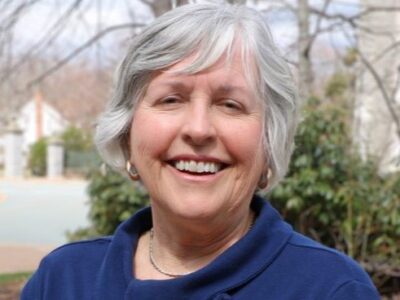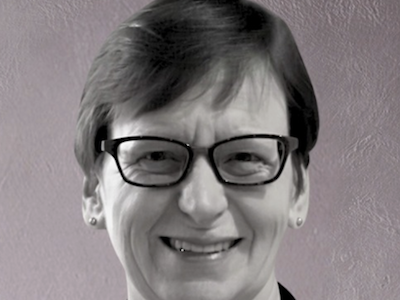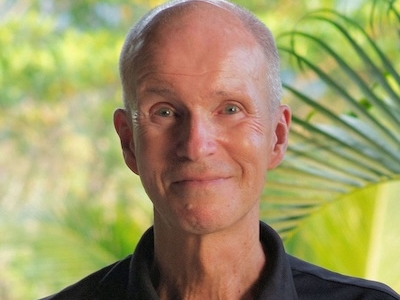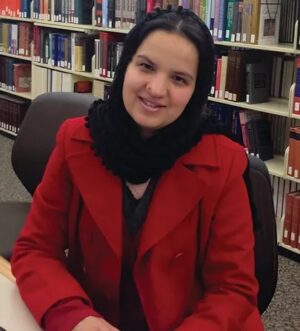
Najia Nasim is the former executive director of Women for Afghan Women (WAW).
Najia Nasim, the former executive director of Women for Afghan Women (WAW), spoke to PANL Perspectives about her work with communities in Afghanistan and the US. WAW is an organization that expanded within two decades from a small group of volunteers into the largest Afghan women’s rights organization in the world. During her tenure, WAW grew to operate 32 facilities across the country, including 16 shelters for at-risk women and survivors of domestic violence. Nasim studies Economics at Carleton University.
Question: What are some of the successes of the organization, Women for Afghan Women?
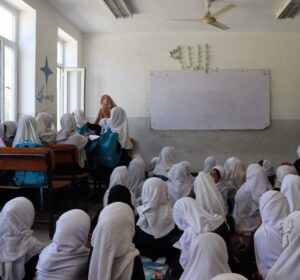
Before August 2021, Women for Afghan Women worked with Afghanistan’s Ministry of Education to provide women and girls with education programs.
Najia Nasim: I worked with the organization for 10 years, managing more than 1,200 staff who provided services, 24/7, to clients in dozens of family-guidance centres, working with people to provide women’s rights training, conflict resolution in families, and non-violent resolution of domestic disputes. We also ran women’s shelters and children’s support centres during a high-risk period in Afghanistan. There were many challenges running the operations, particularly providing direct legal services for women and girls who were victims of domestic violence. Our team had to deal with social hostility to women’s rights and cultural traditions that didn’t accept gender equality — and deal with ongoing armed conflict between the Taliban and the internationally-recognized government of Afghanistan, which eventually collapsed in August 2021.
In spite of the challenges, the organization expanded from one province to more than 20. In Afghanistan, changing the lives of thousands of women through legal services, changing the lives of hundreds of children whose mothers were incarcerated, and being a strong advocate to influence laws and regulations concerning women are among a long list of successes the organization has had since its establishment.
Something I would highlight as a huge success was the opening of family-guidance centres and women shelters in communities that, in the beginning, were against our organization, but who, in the end, supported our services for women and girls in those communities. Thanks to the collective efforts of our team and the positive changes that our work brought to communities, local elders supported our efforts to better protect their women and girls.
That slow but positive paradigm shift in the minds of conservative local populations was an important accomplishment in terms of the rights of women and issues related to domestic violence. In August 2021, it was devastating to see how the Taliban takeover destroyed most of those social transformations that we had worked on for two decades.
In the US, WAW has been providing services to thousands of refugees and newcomers and helping them to transition and integrate into US society .
Q: How did the organization work with women in 20 provinces?
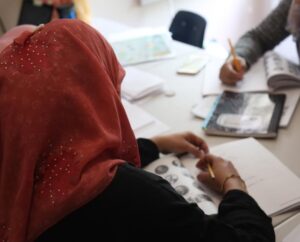
Once, in a village, the community asked WAW to provide them with a literacy instructor who could teach their women and daughters how to read and write. WAW worked with the Ministry of Education and provide them with a nine-month literacy program.
Najia Nasim: Our strategy involved working not only with clients but also with families and their communities. This approach helped clients to prepare for better lives and informed and inspired other women in the communities.
Additionally, we provided capacity-building services to community members, empowering them to become agents of change within families and broader communities. Later, selected community members participated in designing projects tailored to meet their communities’ specific needs.
For example, in one village, the community requested a literacy teacher to teach women and girls how to read and write, as the nearest school was too far away. The community offered a space where women could gather and study, and we collaborated with the Ministry of Education to implement a nine-month literacy program. By the end of the program, the women were overjoyed, because they could read signs, labels, place names and more—an essential step towards independence and empowerment.
Our services also extended to internally displaced people and returnees. To ensure the delivery of high-quality services to women, girls and their communities, we established a coordination system that engaged key stakeholders, including government entities, other NGOs and community councils.
Q: Does the organization still offer services in Afghanistan and in the US and Canada?
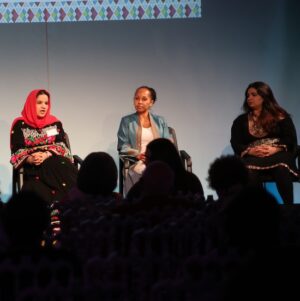
After the fall of Afghanistan to the Taliban in August 2021, the operations of the organization were severely impacted in Afghanistan.
Najia Nasim: The organization started in the US in 2003 and in Afghanistan in 2007. WAW’s operation in Afghanistan was quite large, because the needs were greater in there. In the US, the organization opened its first office in New York City. In 2022, following the evacuation of thousands of Afghans to the US, a second office was opened in Virginia. The organization doesn’t currently operate in Canada.
After Afghanistan fell to the Taliban in August 2021, the organization’s operations in the country were severely impacted. Prior to this, the organization provided primarily legal and counselling services to women who were survivors or at risk of domestic violence. It had also operated women’s shelters and family-guidance centres, offering critical support to those in need.
But after August 2021, the Taliban forced the organization to shut down all the protection centres, shelters and legal services provided to women. They also dissolved the Ministry of Women’s Affairs, replacing it with the Ministry of Vice and Virtue. Despite these restrictions, the organization adapted by redesigning projects to continue operating in Afghanistan and providing services to communities within the new constraints.
Q: How did you end up in Ottawa doing graduate studies in Economics at Carleton University?
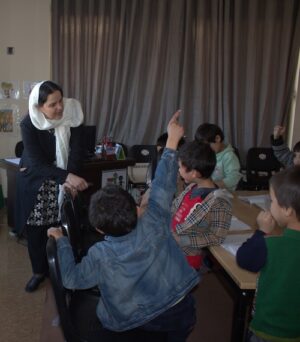 Najia Nasim: After 2021, several countries offered emergency evacuations for human rights defenders, especially for those, like me, whose lives were at high risk. I eventually found refuge in Canada through one of the evacuation efforts.
Najia Nasim: After 2021, several countries offered emergency evacuations for human rights defenders, especially for those, like me, whose lives were at high risk. I eventually found refuge in Canada through one of the evacuation efforts.
Leaving wasn’t an easy process. The psychological effects will take years to heal.
I hold a Bachelor of Business Administration, with a focus on Economics and Accounting, and a Master of Applied Leadership and Management from the US. I chose to pursue a Master in Economics, at Carleton University, to further enhance my research and analytical skills, particularly in working with data and numbers. These skills are crucial for designing projects that effectively address the issues and challenges faced by communities.
I experienced the hardship of immigration twice in my life. In 1992, as a young child, my family fled Afghanistan due to internal conflict, and we lived in Pakistan for 13 years. We returned to Afghanistan in 2005, filled with hope that the war was over and we’d never again be forced to leave. However, 16 years later, we had to leave everything behind—our families, relatives, friends, home and community—for the second time.
Q: What can our sector do better for Afghan women and girls?
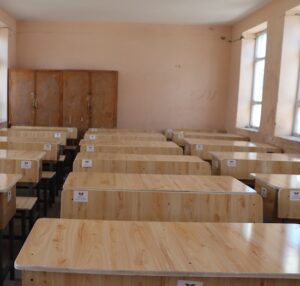
“In Afghanistan, women no longer have access to their basic rights. They can’t go to school after grade six and they can’t get an education, which is a key element of growth in a country.” –Najia Nasim
Najia Nasim: Currently, in Afghanistan, women are denied access to their basic rights. They’re prohibited from attending school and getting an education beyond grade six. Moreover, women are barred from working in many government and non-governmental organizations, effectively removing them from public life. It’s difficult to fathom such systemic exclusion in the 21st century.
I urge all international and Canadian organizations, particularly those dedicated to women’s rights, to continue advocating for Afghan women. Collective action is essential to accelerate the change urgently needed in Afghanistan.
While I deeply value the timely and high-quality services provided to newcomers by many Canadian nonprofit organizations, I recommend stronger coordination among these organizations to raise awareness about the resources available to the Afghan community. Many newcomers I’ve met were unaware of services related to housing, employment, education, language support and childcare assistance. Improved outreach and collaboration would ensure better support for refugees and newcomers as they navigate life in Canada.
Q: What does the future hold for you?
Najia Nasim: In the past two decades, I’ve spent most of my working years with nonprofit organizations. Working with people, particularly improving the lives of women and girls, is my passion and defines me. With the experience I have, I want to design and implement projects that have long-term impacts on people’s lives and help them to pursue their dreams. I’m an optimistic person and will never give up on my dreams of doing something big for people.
Photos are courtesy of Women for Afghan Women and Najia Nasim.
Sign up for PANL Perspectives, MPNL’s free newsletter.
Monday, November 25, 2024 in For homepage, News & Events
Share: Twitter, Facebook
